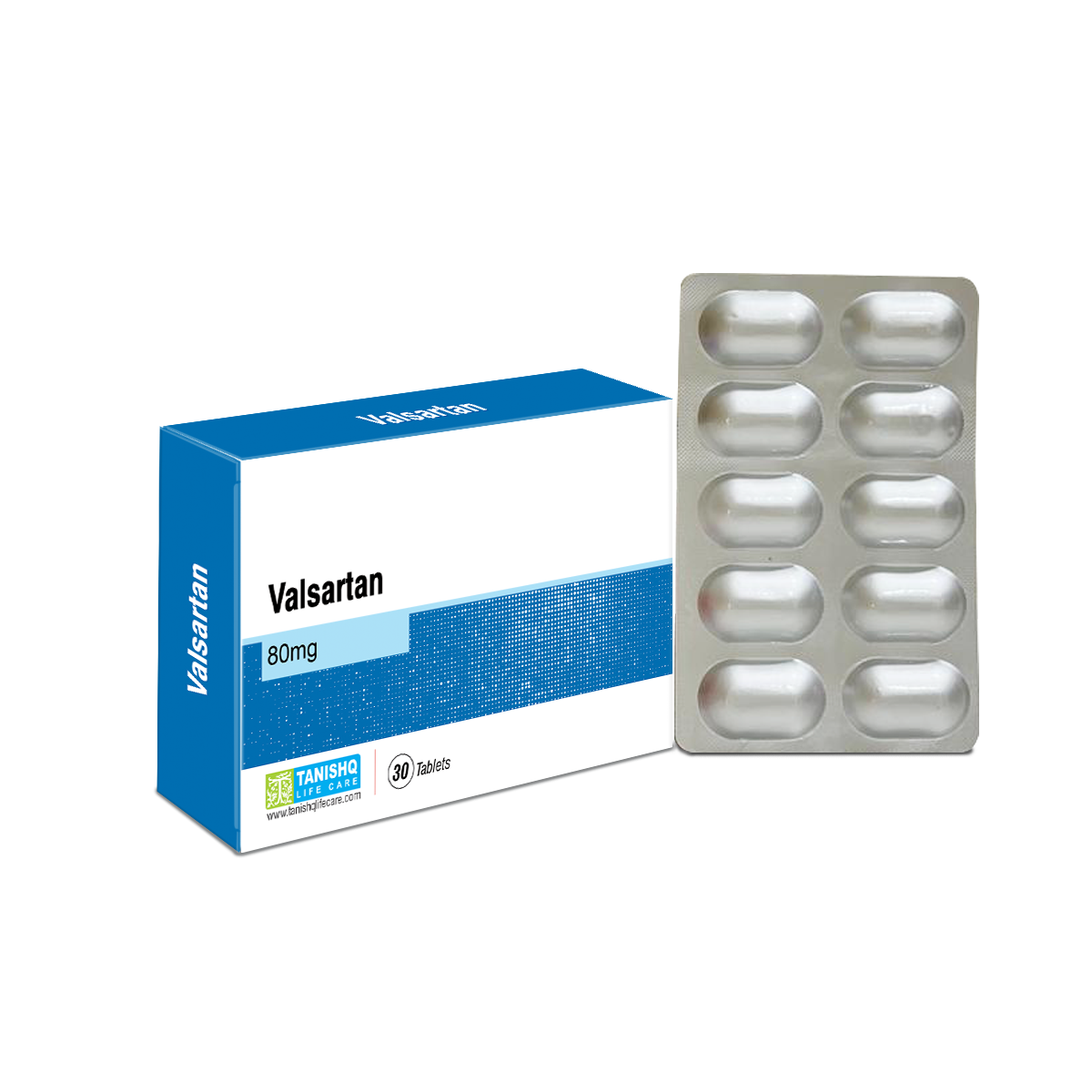
Valsartan
Valsartan is an angiotensin II receptor blocker (ARB) used widely for treating high blood pressure, heart failure, and to improve survival after a heart attack.
- Recommended Usage
Usage & Indications:
Valsartan is indicated for:
- Hypertension (High Blood Pressure): Effective alone or in combination with other medications to lower blood pressure.
- Heart Failure: Reduces the need for hospitalization due to heart failure.
- Post-Myocardial Infarction: Helps in lowering the risk of cardiovascular death in stable patients with left ventricular dysfunction after a heart attack.
Dosage & Administration:
Hypertension:
- Initial dose: 80-160 mg orally once a day.
- Maintenance dose: 80-320 mg orally once a day.
Heart Failure:
- Initial dose: 40 mg orally twice a day.
- Maintenance dose: 80-160 mg twice a day.
Post-Myocardial Infarction:
- Initial dose: 20 mg orally twice a day.
- Maintenance dose: Up to 160 mg twice a day as tolerated.
Precautions:
- Monitor Blood Pressure: Regular monitoring is crucial to avoid hypotension.
- Kidney Health: It's important to monitor kidney function due to potential side effects like high blood potassium levels.
- Pregnancy: Not recommended during pregnancy due to risks to the fetus.
Contraindications:
- Known hypersensitivity to Valsartan.
- Severe hepatic impairment or patients diagnosed with primary hyperaldosteronism.
- Not recommended for patients with severe renal impairment.
Key Benefits:
- Blood Pressure Reduction: Significantly lowers blood pressure, reducing the risk of stroke and heart attack.
- Heart Protection: Provides substantial relief and protection for heart function, particularly beneficial post-heart attack and in heart failure.
- Improved Survival Rates: Assists in improving survival rates post-heart attack by enhancing cardiovascular stability.
Product Category
Related Products
Acetylcysteine
Alendronic Acid
Alfuzosin HCL
Amiodarone
Artemether
Aspirin + Atorvastatin + Clopidogrel
Atorvastatin + Amlodipine
Baclofen
Bempedoic acid
Bilastine + Montelukast
Carvedilol
Clopidogrel Bisulfate
Entecavir
Gabapentin + Methylcobalamin
Gabapentin
Levetiracetam
Memantine
Metoprolol Succinate
Nebivolol
Prasugrel
Pravastatin Sodium
Pregabalin
Ranolazine
Rosuvastatin Calcium + Fenofibrate
Silodosin + dutasteride Capsule
Sitagliptin Phosphate + Metformin HCL
Solifenacin
Tacrolimus
Telmisartan + Amlodipine
Telmisartan + Amlodipine+ Hydrochlorthiazide
Telmisartan + Hydrochlorthiazide
Telmisartan
Teneligliptin + Metformin HCL
Valaciclovir Tablet
Valsartan
Vildagliptin+ Metformin HCL
